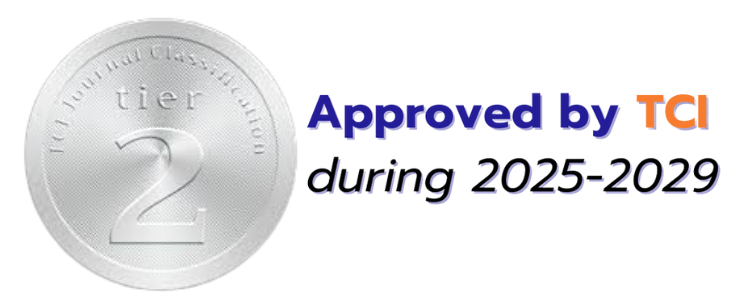The Development of a Training Program to Enhance 21st Century Teachers’ Skills in Creating Board Games
DOI:
https://doi.org/10.56825/jehds.2025.926220Keywords:
Training program, Boardgame, 21st century skillsAbstract
The purposes of this research were to 1) develop and determine a training program to enhance 21st century teachers' skills in creating board games, 2) compare the board game creation skills of participants who attended the training program. And 3) investigate the expectations of the participants regarding the application of the acquired knowledge for developing instructional media and integrating it into teaching and learning practices. The sample group for the study consisted of 20 teachers from Kamphaeng Saen Witthaya School, selected using convenience sampling through open registration for the training program. The research tools included the training curriculum for enhancing teachers' skills in creating board games, a board game creation test, and a participant expectation evaluation form. Data analysis was conducted using the Jamovi statistical software, applying mean, standard deviation, and t-test calculations.
The results of the research indicate that 1) The effectiveness of the training program for enhancing 21st century teaching skills in board game creation showed a process efficiency score (E₁) of 81.05 and an outcome efficiency score (E₂) of 86.00, resulting in an overall efficiency index of E₁/E₂ = 81.05/86.00. 2) The analysis of teachers' 21st century skills in board game creation after training revealed that the average score (x̄ = 79.17, SD = 5.61) was significantly higher than the predefined threshold of 70%, with statistical significance at .05. 3) The analysis of participants' expectations regarding the applicability of the training in instructional design revealed that the average expectation score (x̄ = 3.86, SD = 0.42) was significantly higher than the predefined benchmark of 3.50, with statistical significance at .05.
Downloads
References
Anantakhet, P. (2020). Interesting Topics Related to Game-Based Learning. Institute of Learning, King Mongkut’s University of Technology Thonburi. [translated]
Andrew, H. J. (2016). Board games as a platform for Collaborative Learning. https://www.researchgate.net/publication/309385174
Charoenchanakit, N., & Boonyananta, S. (2022). The Guidelines for Developing Board Game to Promote Effective STEAM Instruction Design and Educational Board Game Design Canvas. Journal of Education Studies, 51(4). [translated]
Chunthed, J. (2019). Designing a Board Game to Promote English Vocabulary Learning for Junior High School Students. https://digital.library.tu.ac.th/tu_dc/frontend/Info/item/dc:176628 [translated]
Jongmuenwai, B., Kongsrima, K., Prachai, S., Jabjone, S., & Suikraduang, A. (2018). Gamification for Learning. Journal of Project in Computer Science and Information Technology, 5(2), 35-36. [translated]
Limpremwattana, V., & Thamwattann, K. (2017). Behavior of Playing Board Games and Component of Effective Factors for Playing games of Teenagers in the Bangkok. Journal of Social Research, 40(2), 111-117. [translated]
Mangkhang, C. (2017). Learning Innovation to Professional Competency in Teacher Education Institute of Thailand Veridian E-Journal, Silpakorn University, 10(3), 317-328. [translated]
Nakasan, N., & Nakasan, C. (2017). Game: Innovation for Creative Education. Rompruek Journal, Krirk University, 34(3), 168-179. [translated]
Saingthong, L., & Techawattanasiridumrong, W. (2021). Present the Guidlines for Developing Learning Managaement Skills of 21 Century Teacher in Primary Education Service Suphanburi Area Office 1. Journal of Legal Entity Management and Local Innovation, 7(2), 82-85. [translated]
Tantiphalachiva, K. (1994). Teachers and education. Journal of Education Studies, 1, 22-28.
Tuamklang, K., & Tuamklang, J. (2012). The development of educational media/innovation for academic rank promotion. Sathaporn Books. [translated]
Downloads
Published
Issue
Section
License
Copyright (c) 2025 วารสารศาสตร์การศึกษาและการพัฒนามนุษย์

This work is licensed under a Creative Commons Attribution-NonCommercial-NoDerivatives 4.0 International License.







